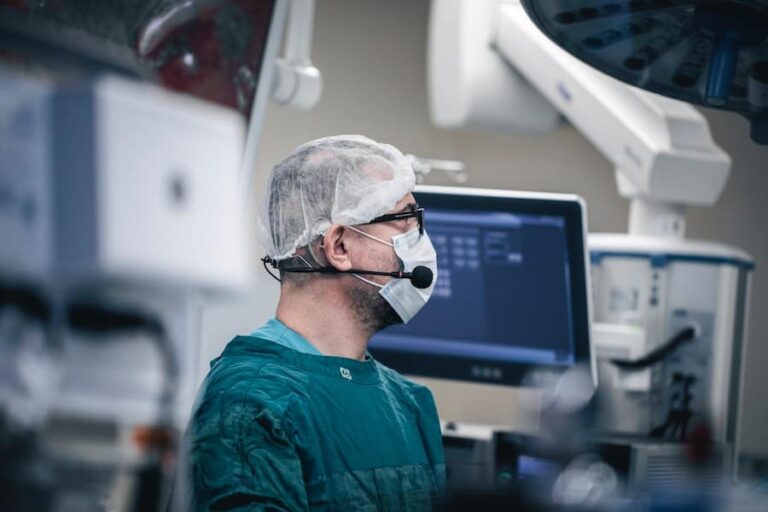Every day, hundreds and thousands of people rely on medical devices, anything from scalpels to diagnostic machinery. The companies that make medical devices are held to strict standards in an attempt to protect patients from any harm. Unfortunately, harm cannot always be prevented; and some devices are more dangerous than others.
One such device is hernia mesh. If you haven’t heard of it before, then you likely haven’t had the misfortune of experiencing a hernia that required surgical repair—at least, not yet. Hernias are incredibly common, and they all worsen over time. Unfortunately, outpatient surgery may only be the beginning for a significant percentage of the nearly 800,000 patients who receive a hernia mesh.
Let’s Talk About Hernias
A hernia is a condition where one of your organs decides to press through muscle or tissue along your abdomen or groin. This can be fairly harmless, causing mild to no discomfort; they can also be incredibly severe, causing intestinal blockages or tissue death.
Hernias do not discriminate. Anyone from the very young to the very old of any gender can develop one of the many types. Eventually, all hernias lead to outpatient surgery.
When getting a hernia repaired, you will either need open or laparoscopic hernia repair surgery. Both are outpatient procedures, which means you return home the same day after a short recovery period. During surgery, your doctor will gently guide your organs back to their proper place and then seal the breach. Hernia mesh helps hold your abdominal tissue together to heal— usually.
When Hernia Mesh Fails
Hernia mesh can experience three types of failure: mechanical, biological, and functional. Mechanical is when the polypropylene starts to break apart; biological is when your body rejects the mesh or otherwise doesn’t get along with it; and functional occurs when the mesh simply fails to prevent your hernia from coming back.
Hernia mesh failure can lead to chronic pain and discomfort, bowel obstructions, infections, sepsis, and even death. It’s important to monitor your health for the first few days and weeks after an outpatient procedure so that you can notice any troubling symptoms and report to your doctor right away.
With hernia repair, these symptoms can include developing a UTI, having blood in your stool, or experiencing fever, increased abdominal pain, discomfort, or nausea.
Why Patients Are Going To Court
Chicago patients or their surviving families are teaming up with experienced hernia mesh lawsuit attorneys and going to court for three main reasons: to seek justice, to protect future patients, and to seek compensation.
Justice
Medical device manufacturers create millions of items that are meant to help patients and improve life. When these devices fail, the results can be catastrophic. Companies need to be held accountable for their failures.
Protection
By holding companies accountable, victims are ensuring that those companies will face consequences and must improve or replace their products rather than ignoring the malfunctions. This helps prevent future patients from experiencing the same pain and damage your family endured.
Compensation
Finally, families want companies to pay for the harm they caused— literally. Compensation from defective medical device cases can cover medical expenses and treatments resulting from the failure and any lost wages. They can also cover funeral and burial costs in unfortunate incidents where the patient didn’t survive.
What To Expect From The Legal Process
Once you retain a lawyer, they will handle the majority of the work. Your lawyer will ensure that all paperwork is filled out properly and turned in on time; they will also help gather evidence, such as medical records or testimony from experts in the healthcare field. Personal injury lawyers also help you calculate and track financial damages so you can aim for a fair settlement.
During this time, you should talk to anyone about the case or sign any forms other than what your lawyer approves. If anyone approaches you about the case, direct them to your lawyer. Don’t post on social media about it, and let your friends know you aren’t allowed to discuss details. This protects you against having your words twisted or taken out of context to minimize your case.
While your lawyer handles negotiations, your main task will be to focus on your and your family’s recovery. This includes any medical treatments, but you may also want to consider therapy. Having a medical device fail is a traumatic experience, and it could impact your or your family’s mental health. Let everyone have the chance to speak with a therapist, especially if they seem to be struggling.
Lawsuits can take anywhere from a few days to a few years, so trust your lawyer to keep you appraised of any changes while you get back to a somewhat normal life.
